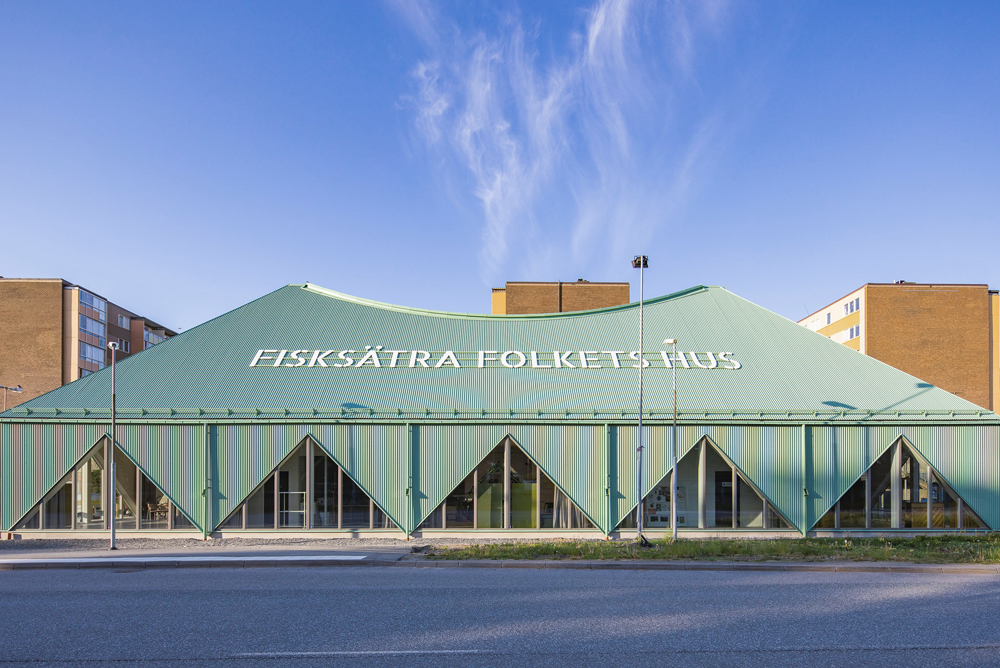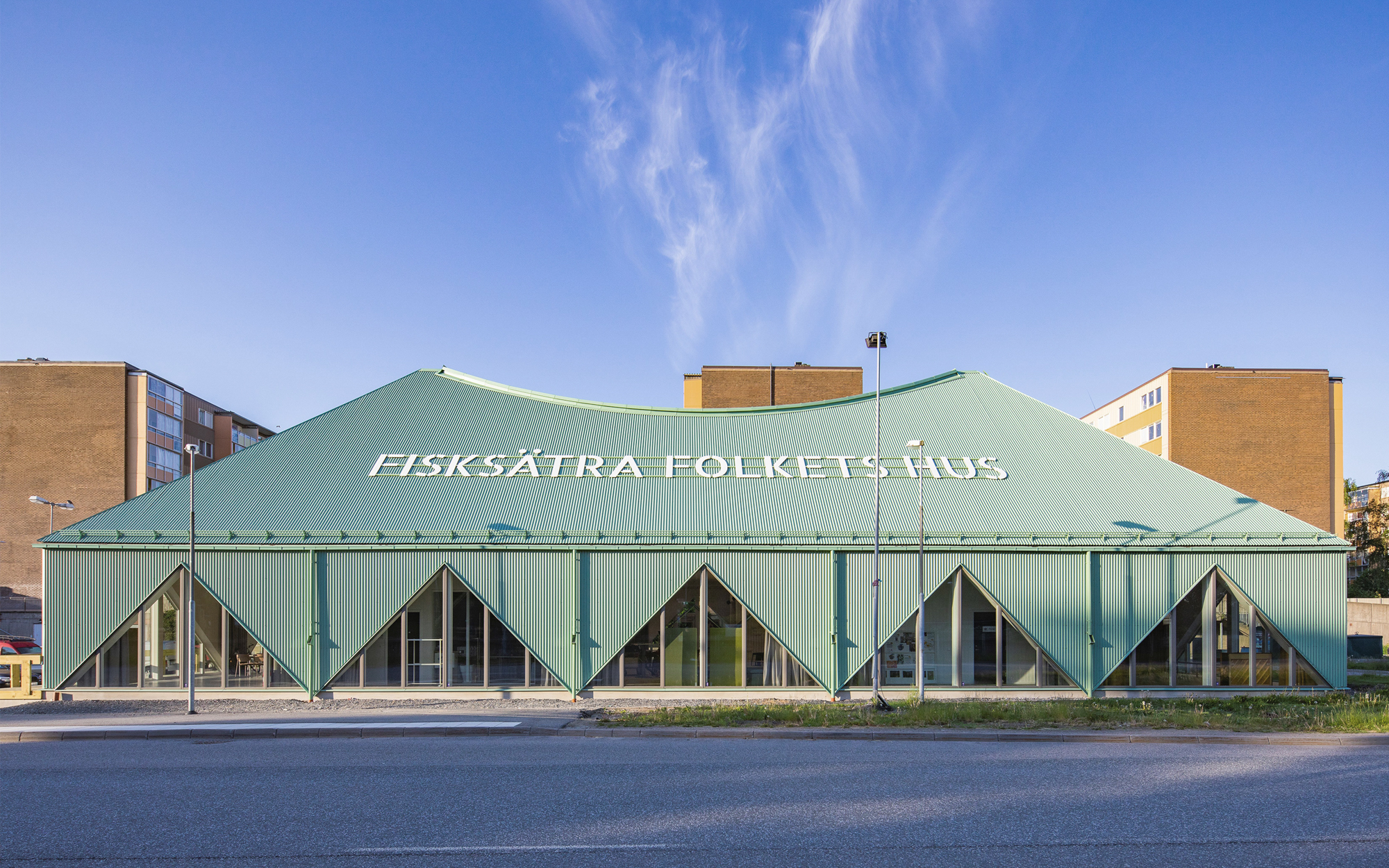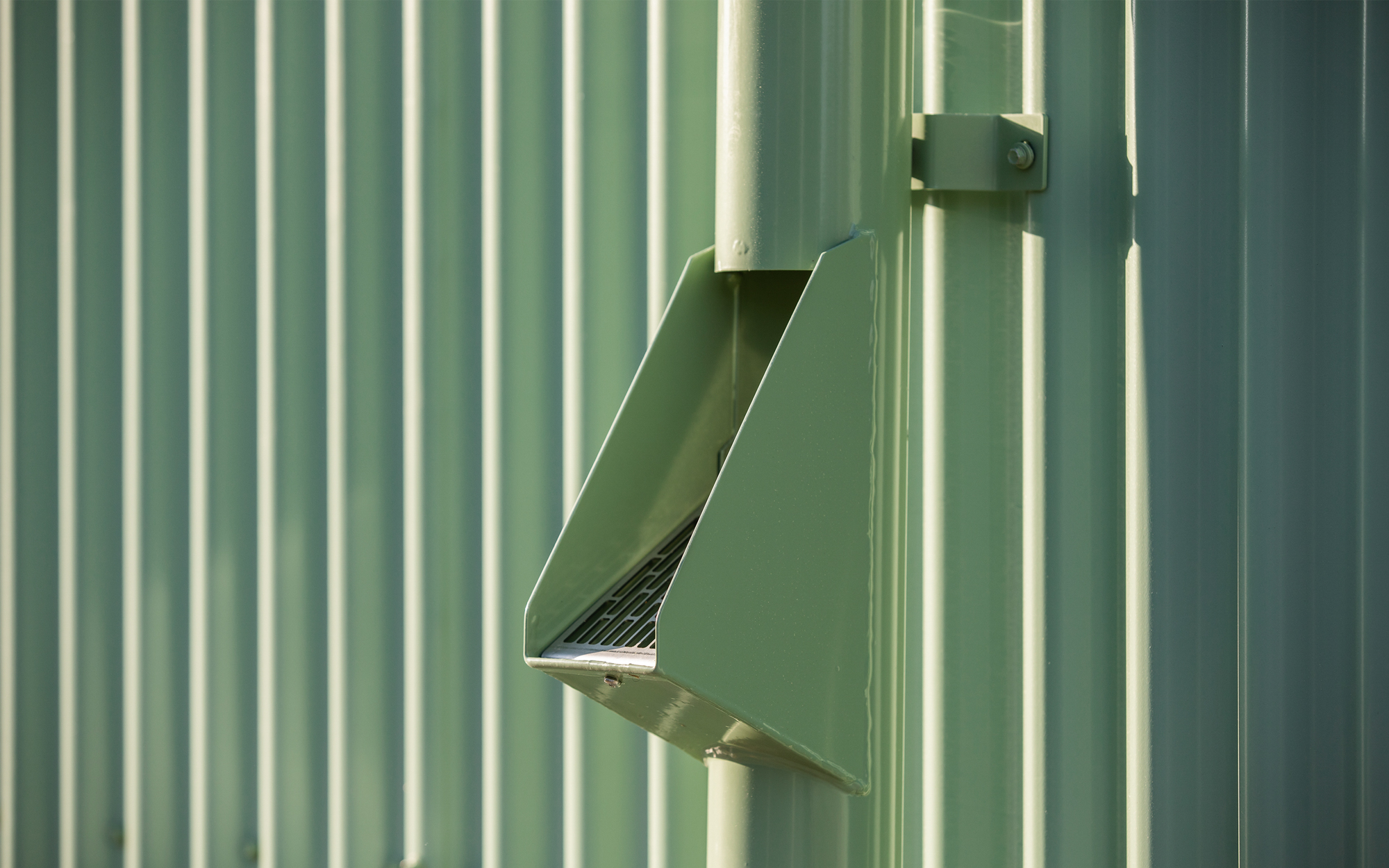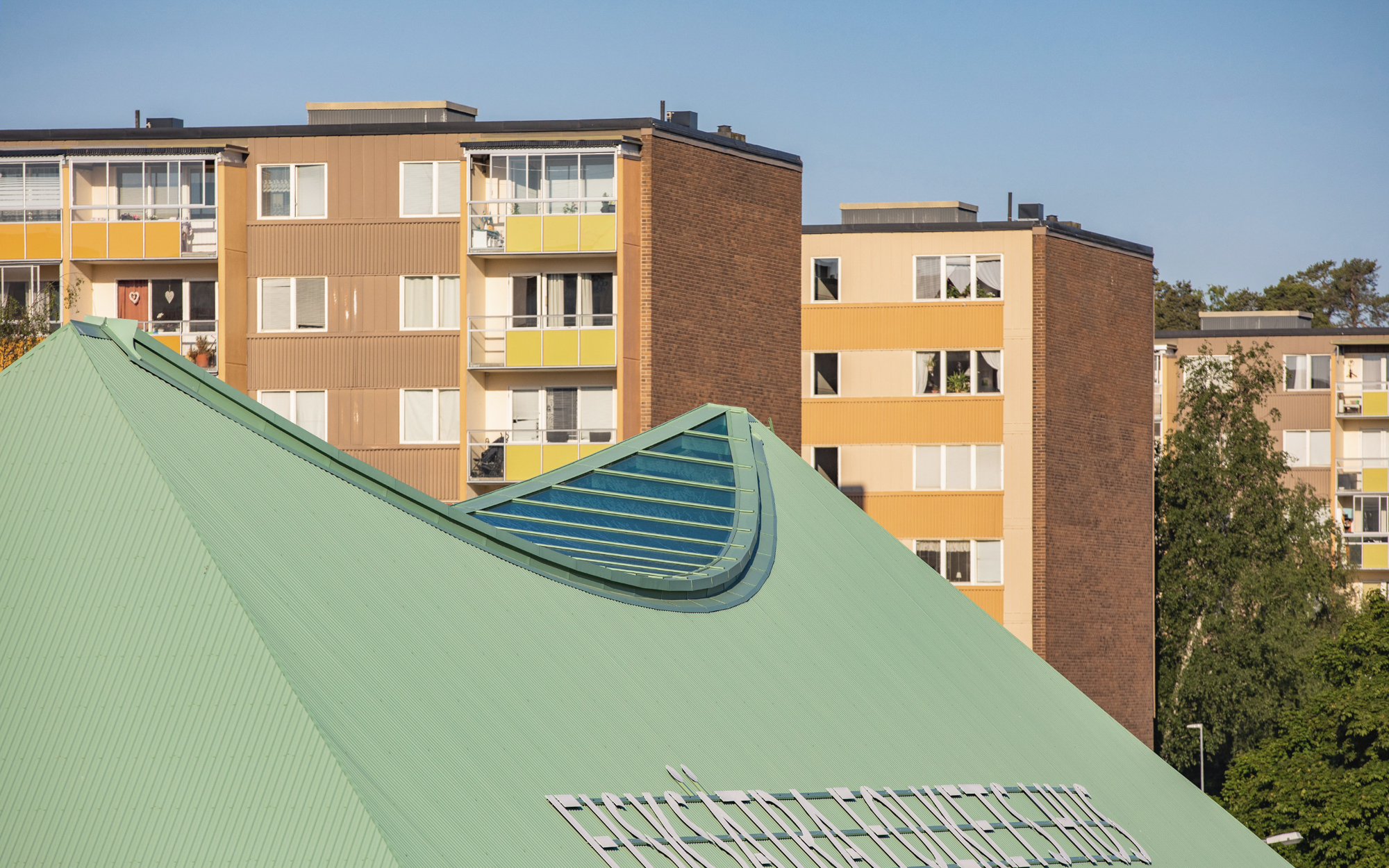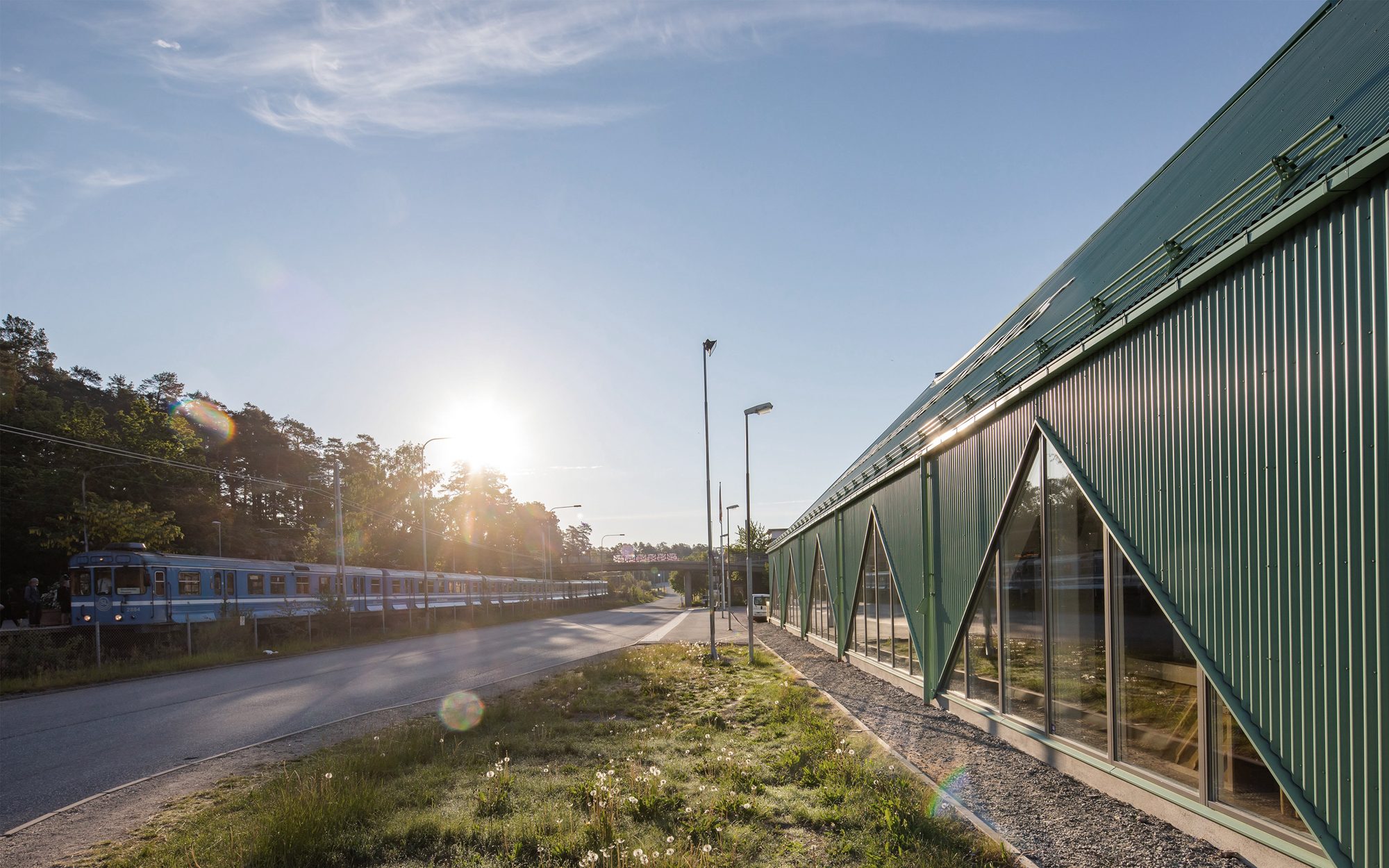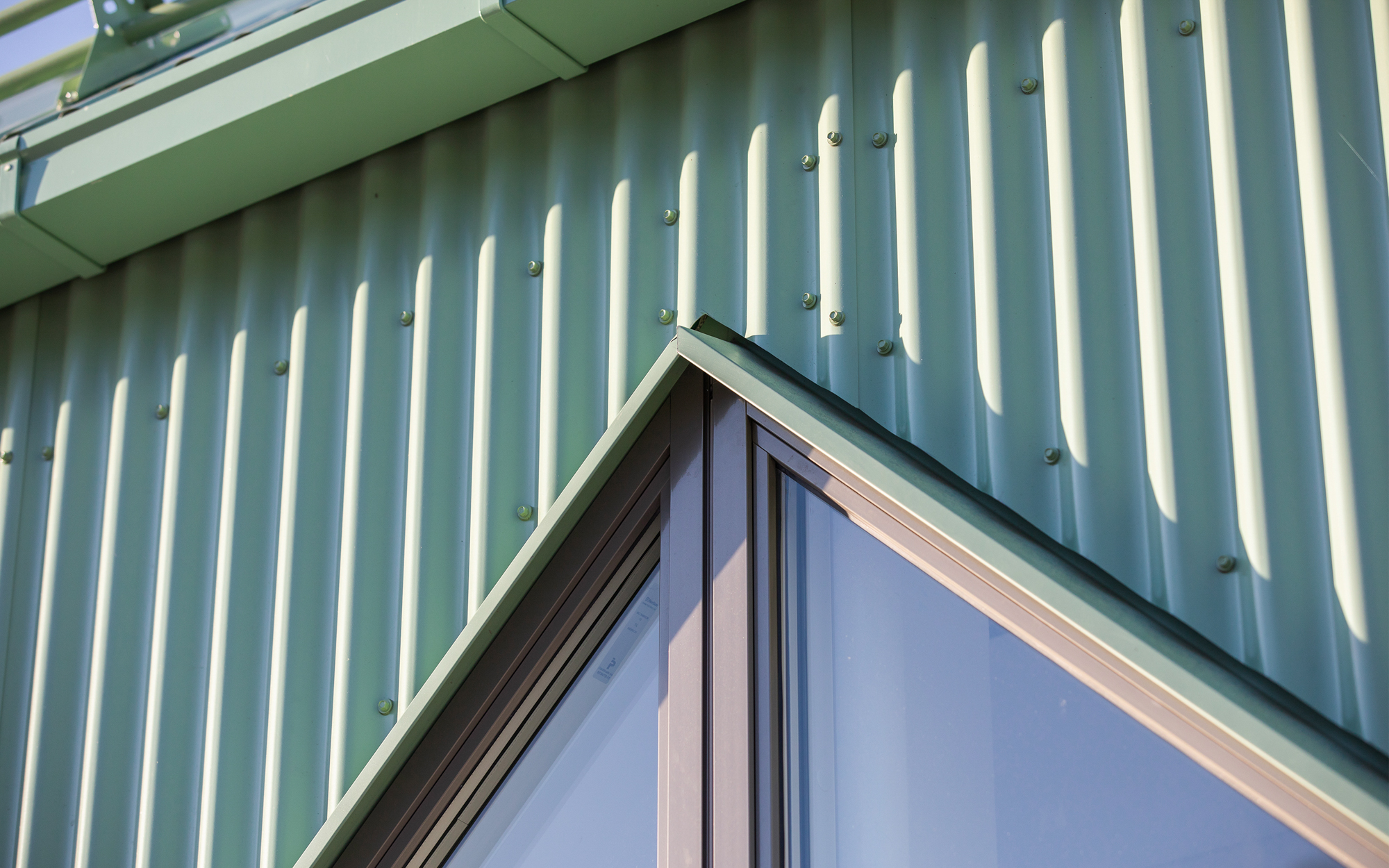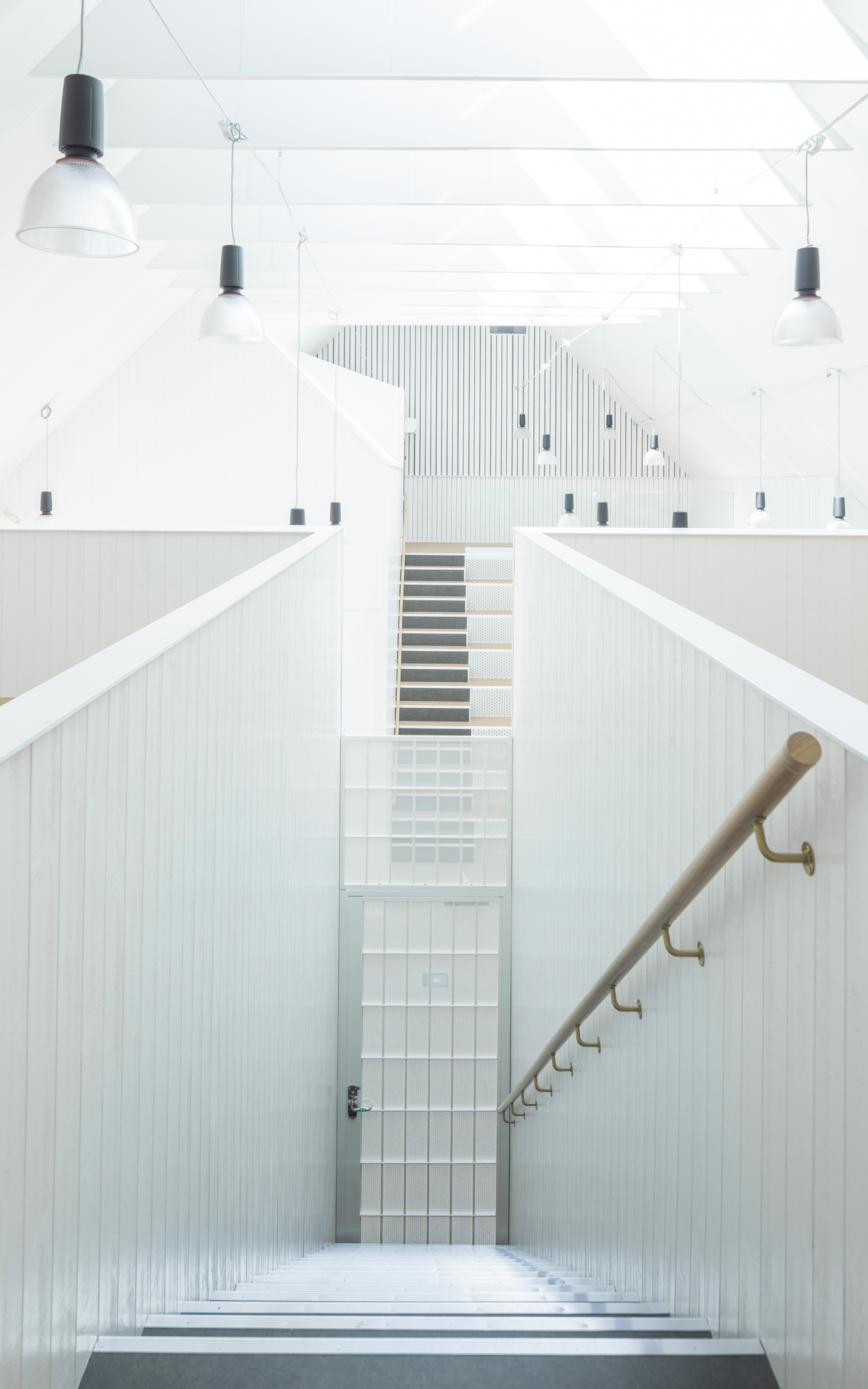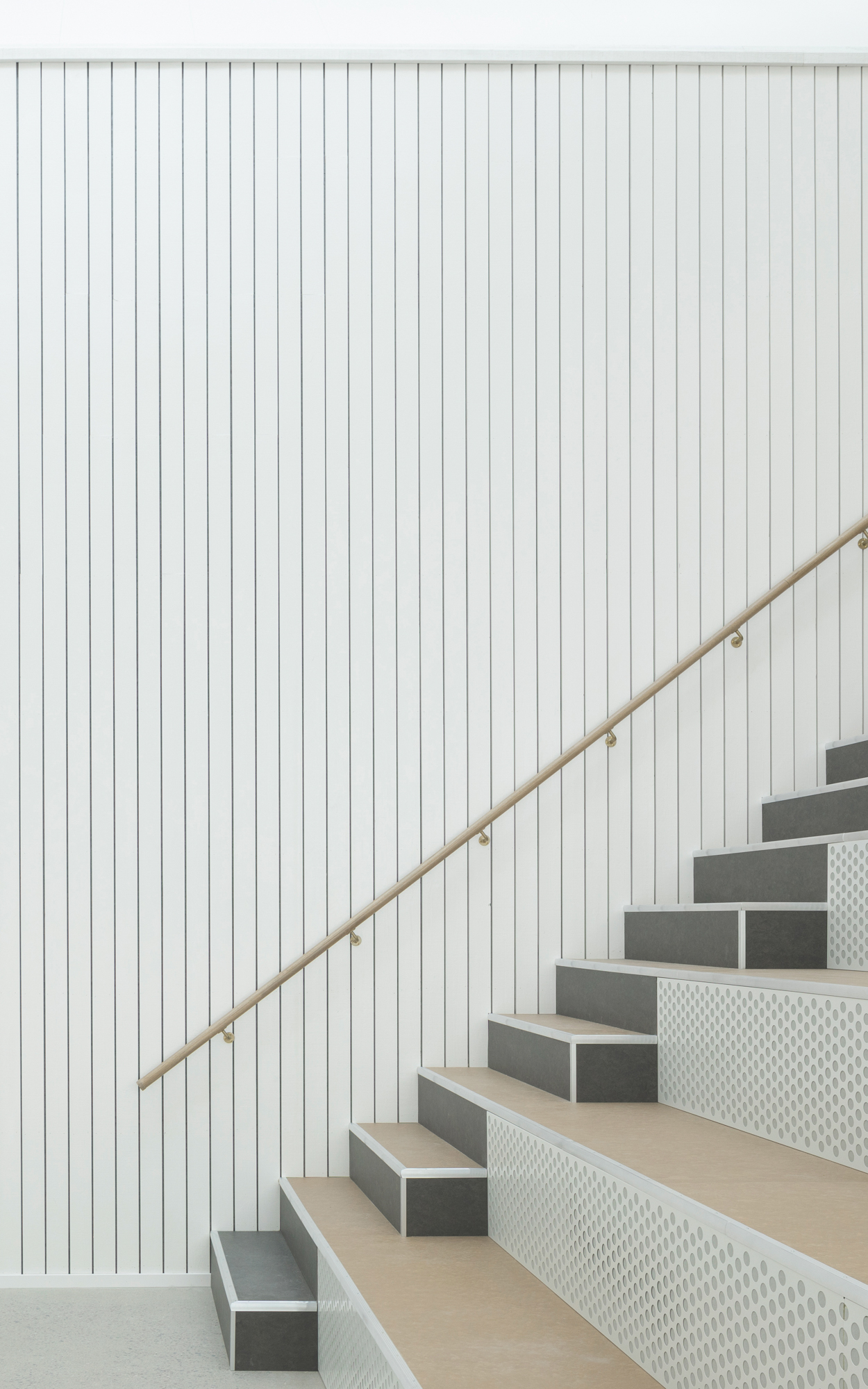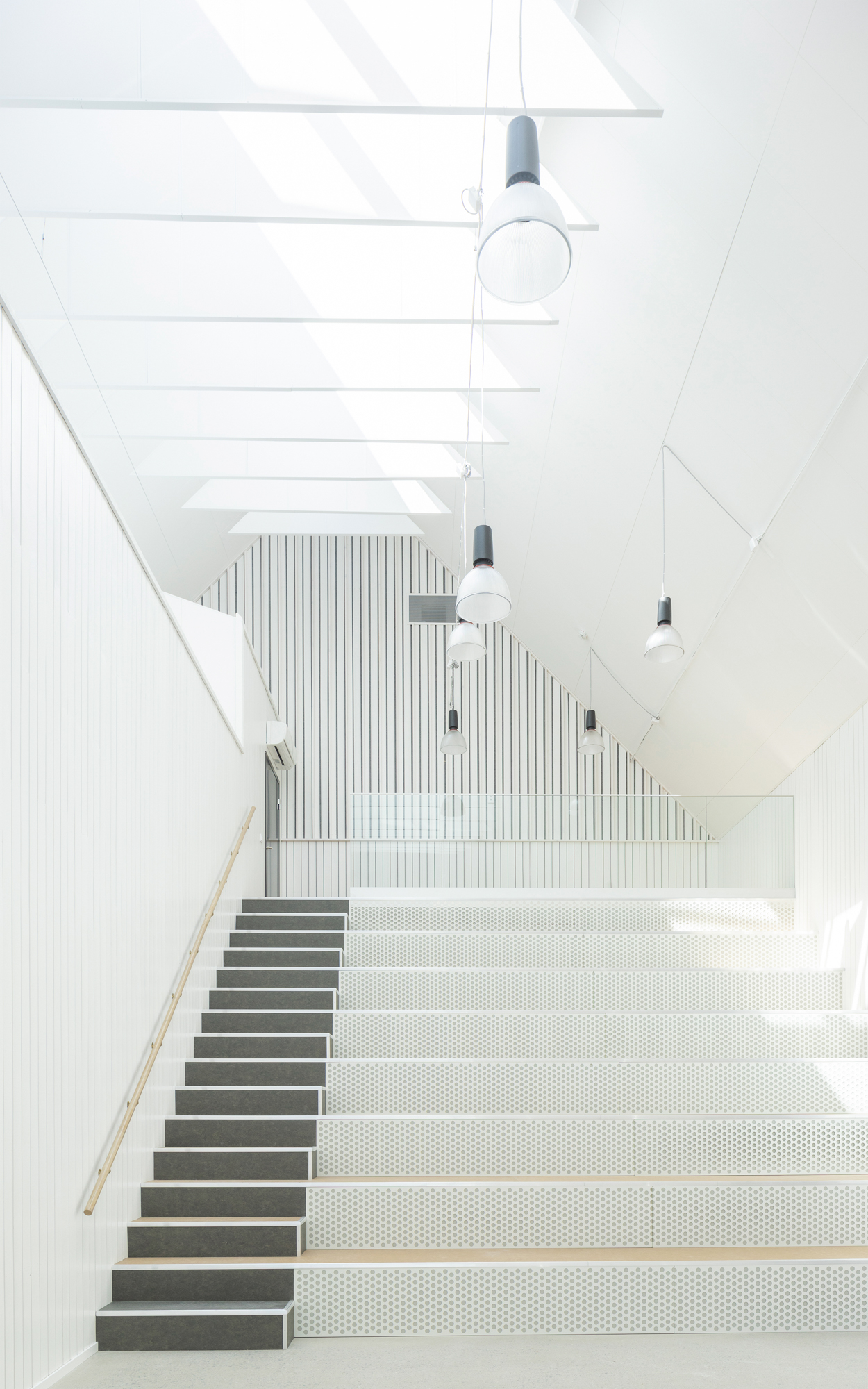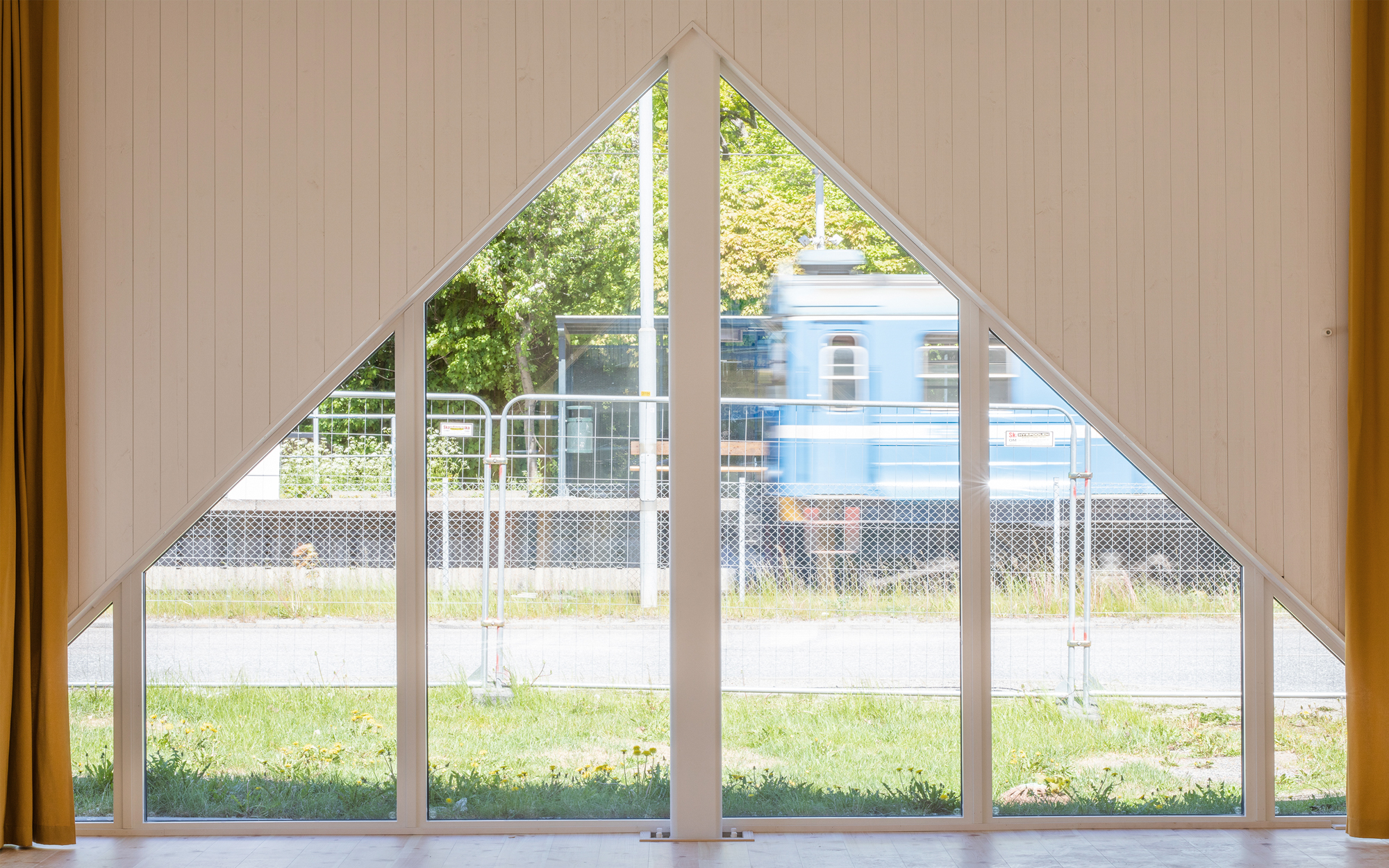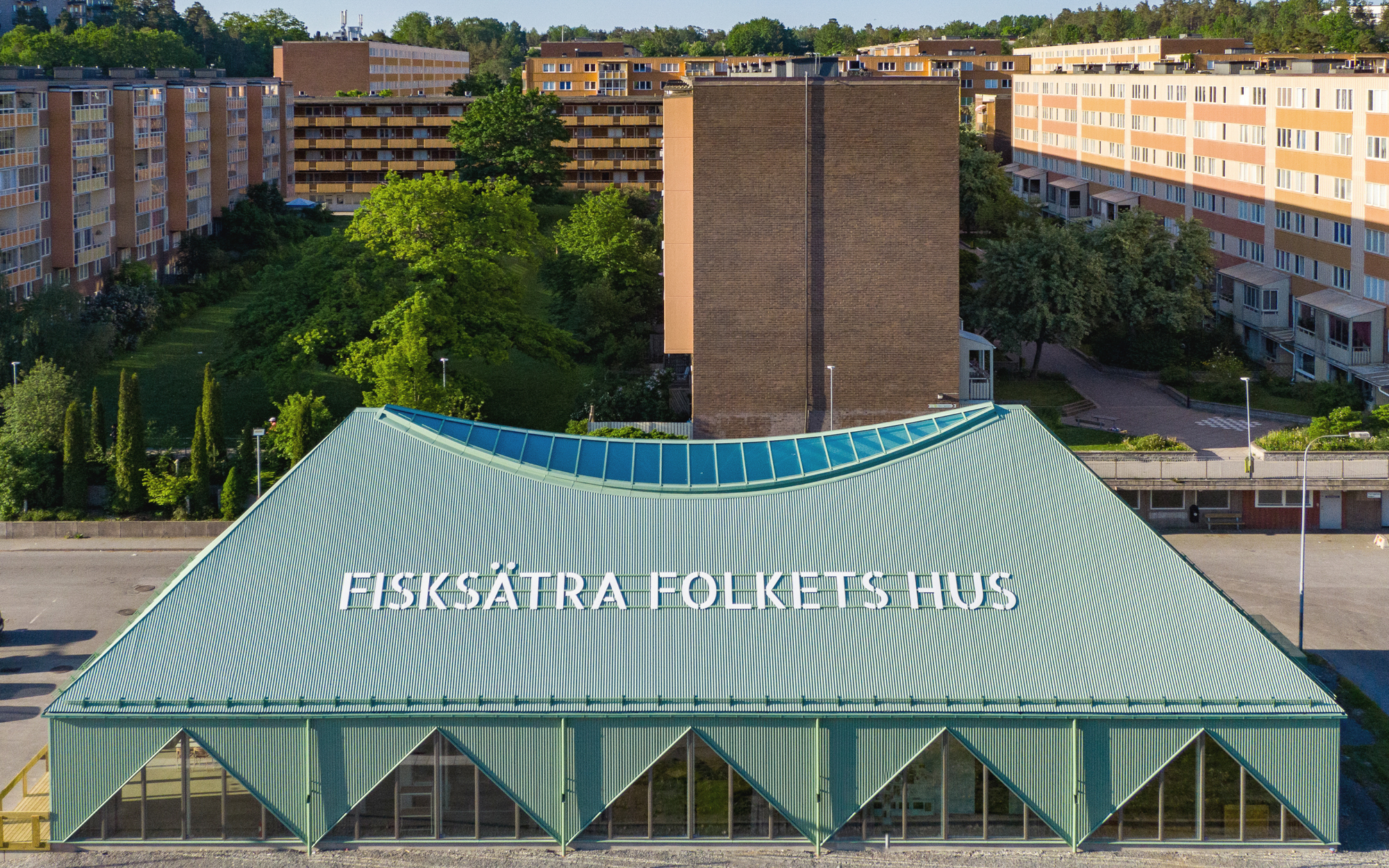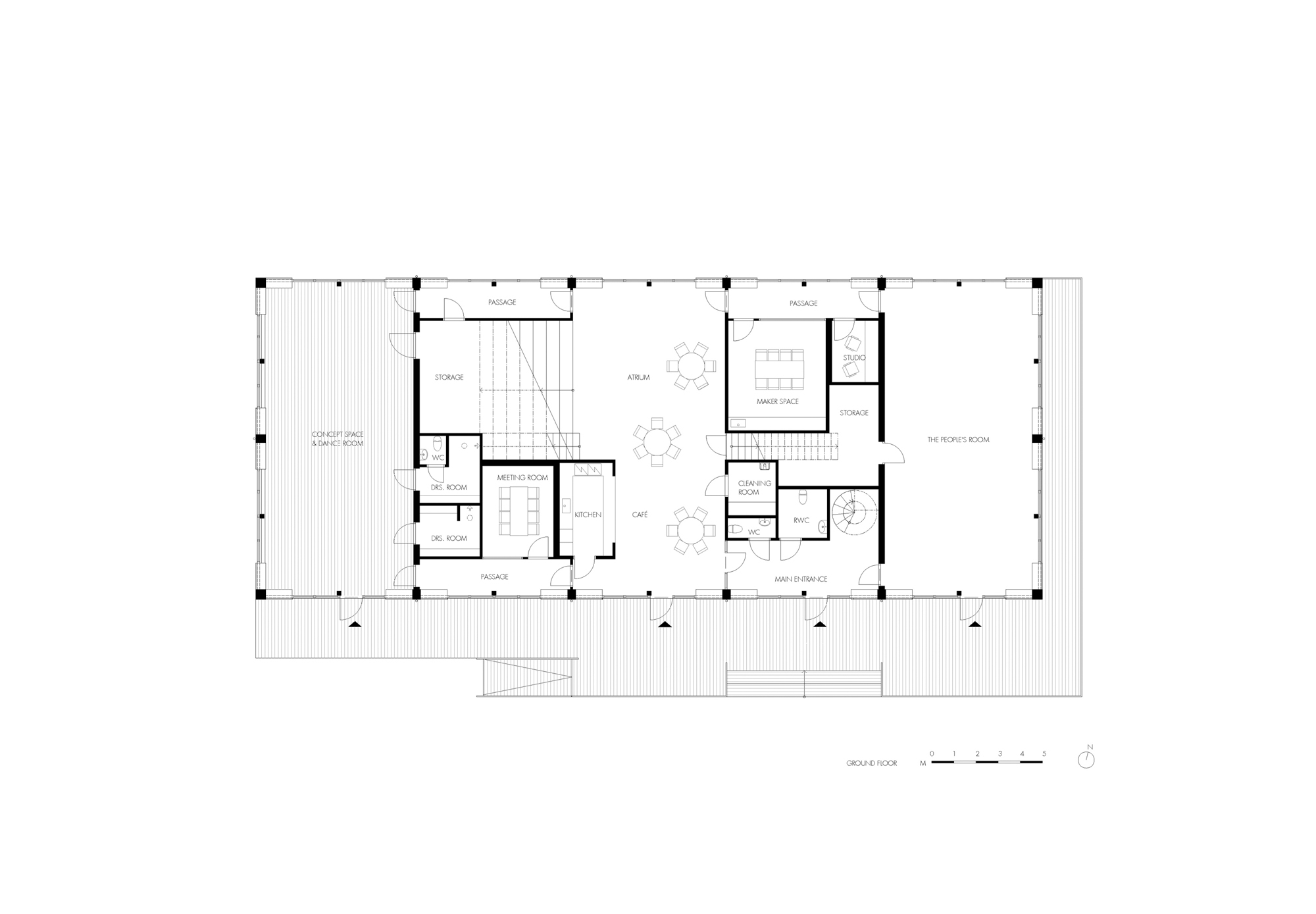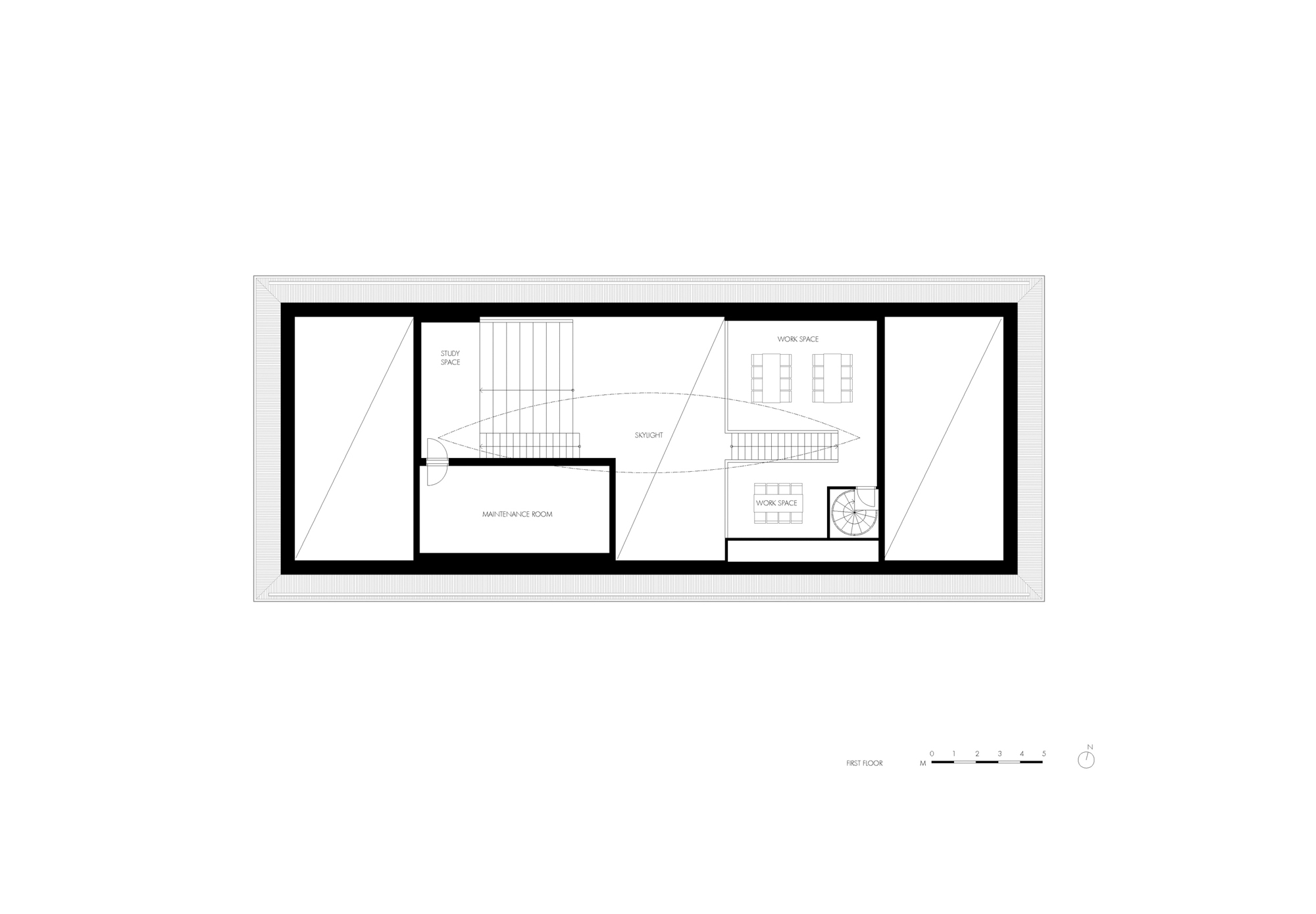A Steel Tent: Community Centre in Fisksätra by sandellsandberg

Foto: Stena Fastigheter/Pixprovider
Fisksätra is a planned community comprising multistorey apartment buildings. It was erected east of Stockholm in the 1970s and now counts around 7,500 inhabitants. The suburb already had a Folkets Hus operated by a non-profit association, but it was located on the outskirts of the suburb. With their new building, sandellsandberg have brought the institution so important for community life into the centre of Fisksätra and simultaneously launched the upcoming renewal scheme for the district. The architects had only one year from the first design sketches to project completion. The new Folkets Hus was conceived as a provisional structure and has only a temporary building permit, which explains the rush. Its shape is fitting: a large tent with a hipped roof and an exterior skin of green-coated corrugated steel sheeting with triangular openings at regular intervals. The slung roof ridge so typical of tents has been graced with a 30-m long, fishbelly-like skylight that provides the interior with natural light.
Two larger halls are located on the front side of the building. To each side of the central atrium with café, there are small ancillary spaces and meeting rooms; above these, two facing stairways lead up to open galleries. The material palette in the spaces is bright and unpretentious, with polished concrete floors, massive pine fittings and white-painted wooden panelling on the walls. Colour, the architects write, should be brought into the house by its users. And who knows, perhaps the Folkets Hus will remain in its present location for the long term. Tent structures of metal sheeting enjoy a certain tradition in Swedish architecture, and not only for temporary buildings. From 1781 to 1782, King Gustav III commissioned the construction of the Vakttältet (Guards’ Tent) − actually a solid-brick guardhouse with an added, tent-like façade of metal sheeting. In 1790, the Koppartälten (Copper Tent) followed in Stockholm’s Hagaparken. Like the Folkets Hus, these “tents” were intended to function as temporary pleasure pavilions. However, they stand to this day and are used as a restaurant and event venue respectively.

